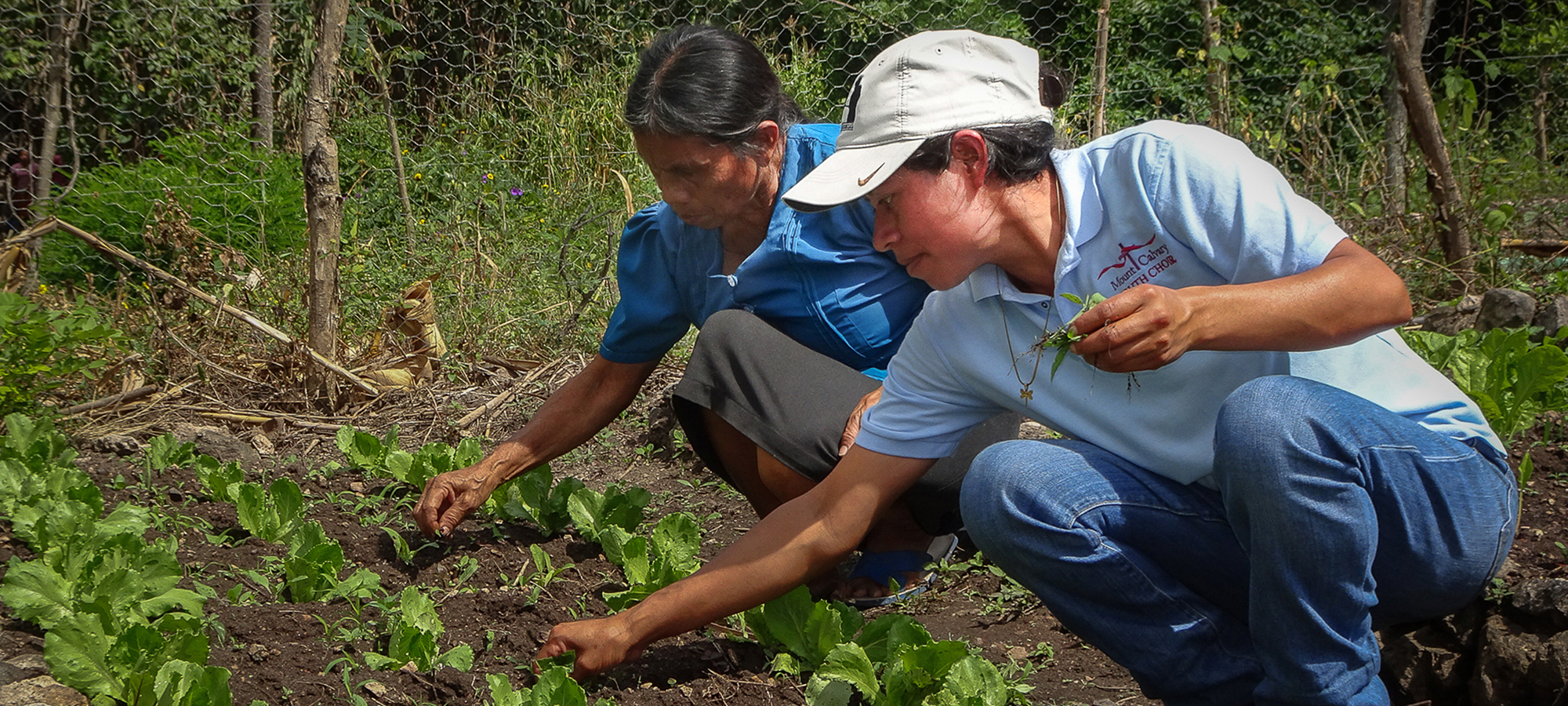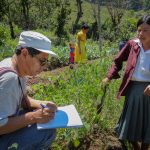
Food Program: Creating Agroecological Gardens
In struggling communities in rural Guatemala, local agriculture promoters provide technical support to program participants, guiding them in compost-rich soil building, crop diversity, organic growing methods and plant-based deterrents for pest management. Women organize their own communities to construct rainwater catchment systems that sustain their gardens through the dry season. Our formation promoter helps women to recognize the forces that keep them impoverished, to assert their rights as citizens, and to mobilize to build a food-secure future for their families.
Marginalized communities in Guatemala are diversifying their food production, increasing their access to healthy food, and improving their overall nutrition. Poor farmers have, for many years, lived on corn and beans that can be grown in the wet season, and dried for consumption throughout the year. Now, with support from Project Harvest, they are developing family gardens as well, growing fruit and vegetables through the long dry season.
Soil Conservation and Plant Diversity
Our local agricultural promoters meet with participants in their own communities, provide technical support and training, and help with the adoption of new techniques. Since the soils are marginal at best, the training must start from the ground up.

In many communities, terraces must first be dug from the rocky hillsides, creating flat ground that will prevent the runoff of soil and water. Farmers are then instructed on how to build healthy, nutrient-rich soils using worm composting to break down animal manure and other organic waste. Once the soil has been developed, a variety of vegetable seeds, fruit tree saplings, and indigenous plants—along with the growing details needed to cultivate them—are introduced to promote diversity in the gardens, which, in turn, attracts a diversity of pollinators and beneficial insects. Participants are encouraged to save the best seeds from the strongest plants, so the ones that thrive in the local conditions can be shared and planted again. This is an important knowledge to pass on, as hardy plants naturally resist infestation and disease – a vital element of organic gardening that eliminates the use of pesticides. Compost tea, a by-product of the worm composting, is sometimes used to provide extra nutrients to the plants as they develop.
Water Conservation
In the dry corridor of Guatemala, rains fall for only about six months each year. During the dry season when very few crops will grow, families living on these marginal lands rely heavily on dried corn and beans for their limited diets. To extend the growing season and increase family nutrition, project participants learn how to construct and maintain a rainwater catchment system. When the rains fall, it is collected in a cistern that holds up to 12,000 to 16,000 liters, which is meted out sparingly with drip irrigation to the vegetable gardens throughout the dry season.
